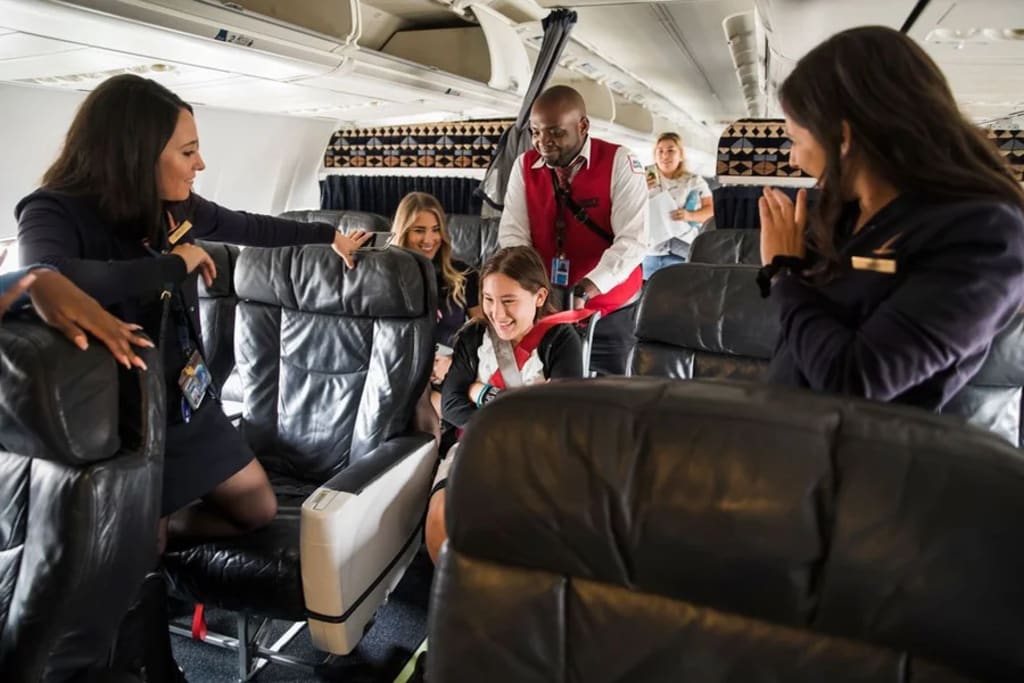
It can be virtually impossible for a disabled person or someone who has mobility issues to travel without access to support. Those who do manage to travel usually have to board the vehicle before everyone else or they might have to wait till others have got off. This can be a very frustrating time as those who are affected may have worries that they will be left behind or that they may get stuck in large crowds which can develop in certain areas of train/bus stations as well as airports.
Disabled people who travel by plane usually have to wait till a member of airport staff becomes available who can help them get on or off the plane. This can sometimes take a while as there is not always someone who is available to provide assistance for a disabled person at the right time. They can sometimes be left waiting for several minutes to get the assistance they need from someone who is fully trained and qualified to do do.
Special assistance is available to passengers who may need help to travel such as the elderly, those people with a physical disability, such as wheelchair users, and those who have difficulty with social interaction and communication, such as those with autism or dementia.
Your right to special assistance is stipulated in UK law and applies when:
You fly on any airline from a UK airport
You fly on an EU or UK registered airline to an UK airport
You fly from outside of the UK or EU to the EU on a UK carrier
Passengers who want special assistance should aim to give their airline 48 hours notice of the help they require.
Help is available from the moment you arrive at an airport and can cover:
your journey through your departure airport
boarding the aircraft and during the flight
disembarking the aircraft
transferring between flights
and
travelling through your destination airport.
Earlier this month, a webinar was hosted in collaboration with many organisations who specialise in improving accessibility for disabled people. These included the Rights on Flights campaign, which brought together industry leaders, experts, and the disabled community. There were many topics included in the presentation which included addressing pressing accessibility challenges in the air travel sector. Coverage was also given to the various different ways in which air travel could be made safer for everyone.
“This webinar served as an important platform to explore the most pressing challenges faced by the disabled community and the industry today,” said David Dew-Veal, co-founder of ORA.
There were many key take aways and information that those who took part in the webinar learnt on how to ensure they had a journey which was as quick and safe as possible. This included:
1. Staff Training is Critical
High-quality, consistent staff training was identified as a top priority, including respectful communication and safe handling of mobility aids such as wheelchairs.
2. Collaboration with the Disabled Community
Participants stressed the importance of engaging the disabled community to develop practical, effective solutions that meet real needs.
3. Innovation for Personalised Experiences
The event explored innovative ideas like dedicated wheelchair spaces on aircraft and seamless sharing of accessibility data across key stakeholders to enhance accessibility and personalisation in air travel.
For those who couldn’t attend, the full recording of the webinar is now available on our website. Visit https://openroadaccess.co.uk/shape-the-future-of-air-travel-webinar/ to watch and learn how we can all work towards a more accessible future for air travel.
“As the aviation industry continues to recover and grow in a post-pandemic world, it is more important than ever that we ensure air travel is accessible, comfortable, and safe for everyone,” said David Dew-Veal. “The roadmap we’ve developed will help advocate for the changes needed to make this vision a reality.”